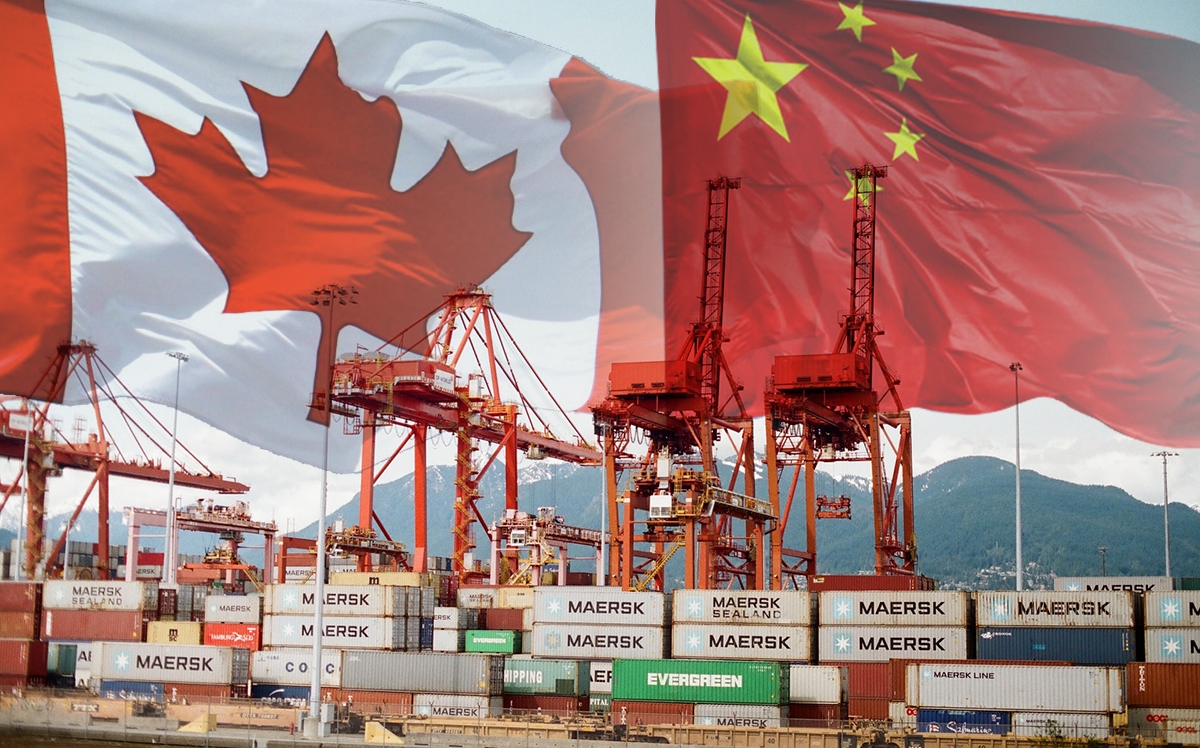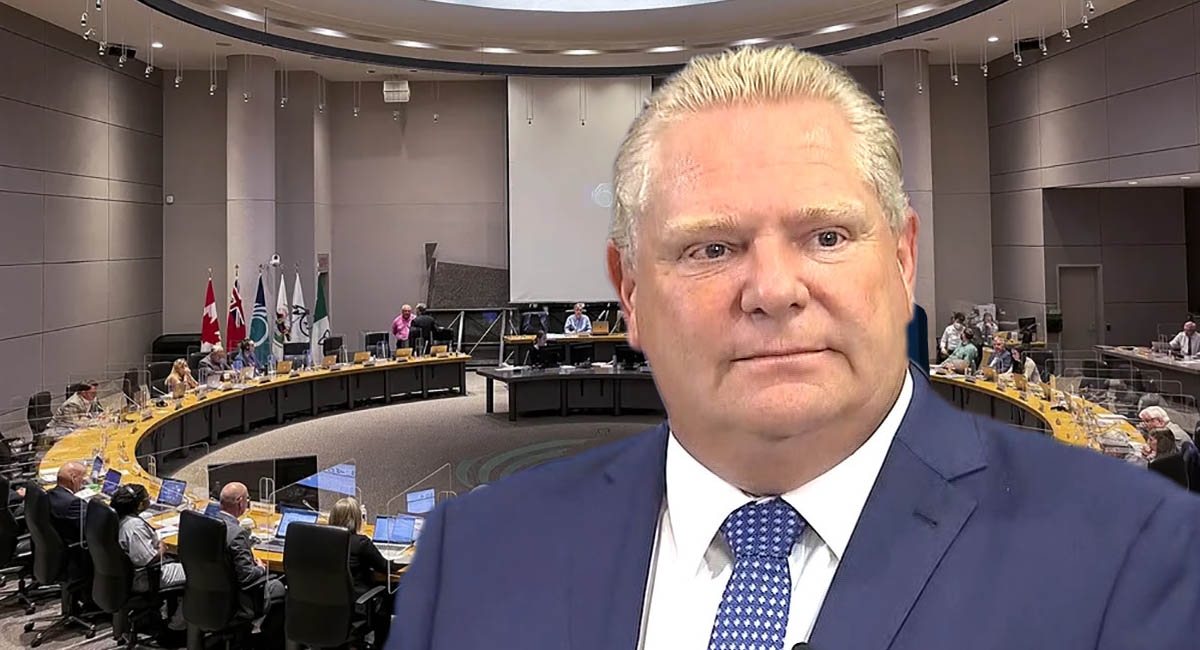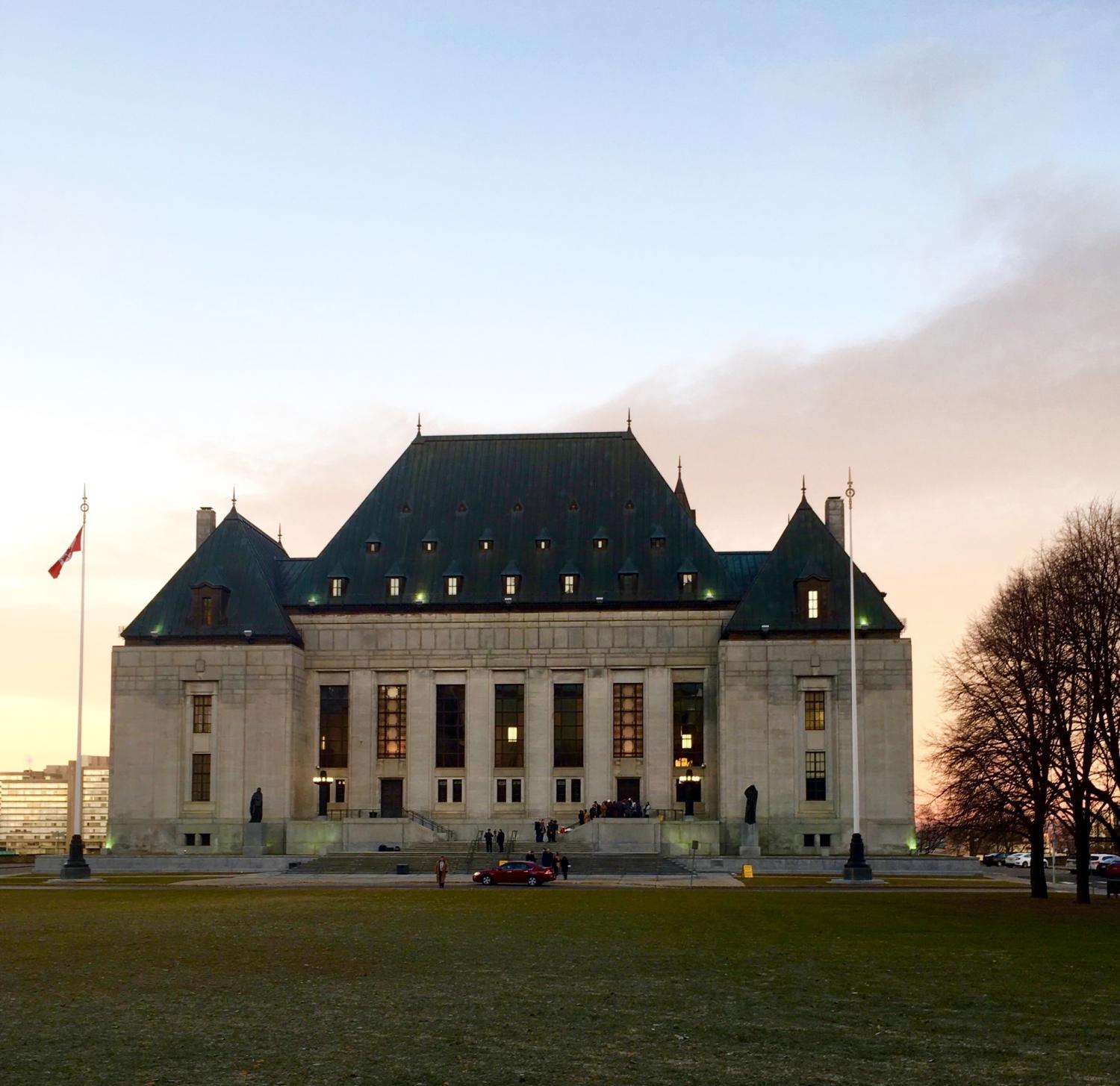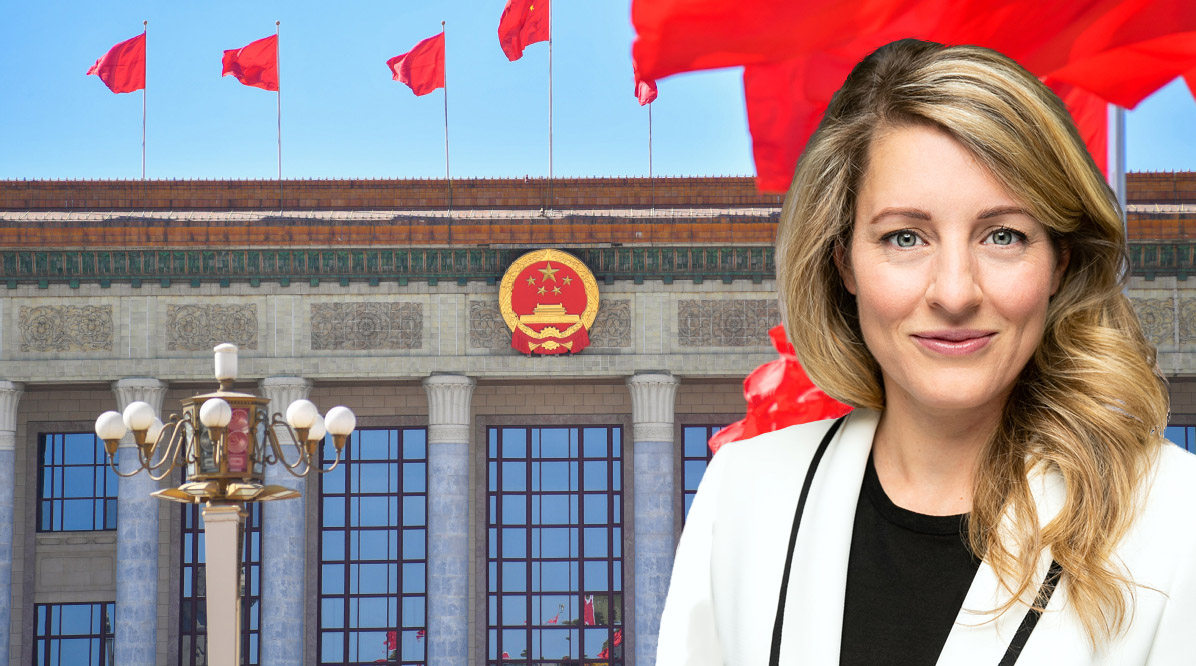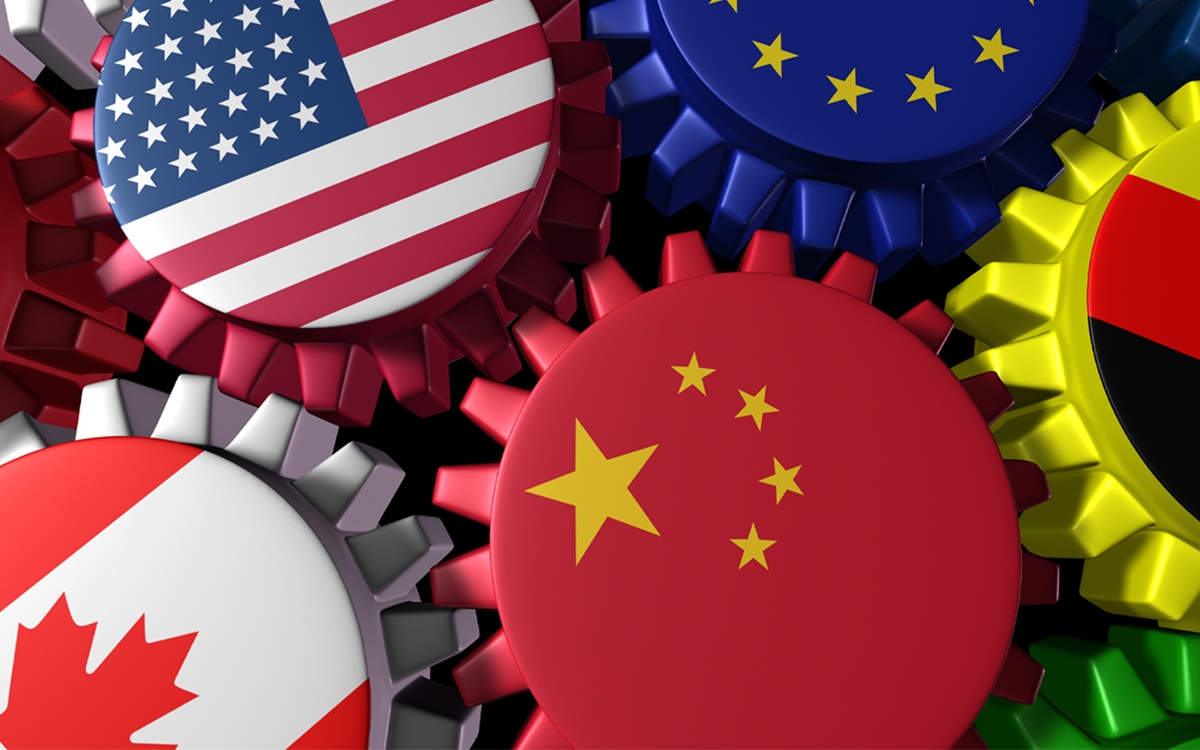
Despite current bi-lateral tensions China and Canada both agree on the need for multilateralism in a post-Covid-19 world
Ottawa Life Magazine has been publishing a Canada-China Series since 2013. The series focuses on bi-lateral interests, business affairs, people-to-people relations, Chinese culture and the Chinese diaspora in Canada. Since 2018 there has been tension in the Canada Chinese political relationship. Ottawa Life Magazine has continued and will continue to publish relevant information related to the bi-lateral relationship, including stories, columns and editorial features that present issues from the Chinese perspective, as well as from the Canadian government and other Canadian stakeholder points of view.
PART ONE OF TWO
2020 marks the United Nation's 75th anniversary which is basically a celebration of all things multilateral. It comes during a year when humankind is coping with a pandemic whose collateral effect has caused a global economic recession and a series of turbulences and changes the world over. One positive consequence of the Covid-19 crisis has been the narrative being put forward by many world leaders including Chinese President Xi Jinping and Canadian Prime Minister Justin Trudeau about the importance of international cooperation and multilateralism.
Canadian Prime Minister Justin Trudeau eluded to this after the virtual meeting of G20 leaders on November 22, 2020 when he declared that ,“Only together can we tackle the greatest challenges of today and tomorrow, and create a more resilient world that works for everyone”. Trudeau spoke of “an opportunity to expand global efforts to fight COVID-19, restore economic growth, and combat climate change.” His remarks highlighted the importance of G20 leadership and a coordinated approach to control, contain and then defeat the coronavirus and restore economic growth.Trudeau advocated for equitable access to vaccines, therapeutics, and diagnostics, “because we can’t end the pandemic in Canada without ending it everywhere”. He reaffirmed Canada’s support and contributions to initiatives like COVAX (COVAX is an international platform that supports the research, development and manufacturing of a wide range of COVID-19 vaccines) and multilateral institutions like the World Health Organization, which Trudeau described as "essential in our fight against COVID-19”.
Trudeau stressed the importance of putting people at the heart of recovery efforts. “From creating new jobs to building economic growth that benefits all our citizens, we must work to rebuild societies that are safer, fairer, and more resilient.” He spoke of the need to reduce the digital divide and ensure equal access to quality education and financial services to people around the world. He raised the importance of predictable, inclusive, sustainable, and transparent rules-based trade to the global economic recovery efforts saying that, “together, through shared values and effective multilateral cooperation, the world will be able to build back better and emerge stronger from the pandemic”.
Trudeau’s G20 remarks were surprisingly similar to views expressed by Chinese President President Xi Jinping's at three recent international conferences: the 12th BRICS Summit (BRICS is the group composed by the five major emerging countries — Brazil, Russia, India, China and South Africa, which together represent about 42 per cent of the population, 23 per cent of GDP, 30 per cent of the territory and 18 per cent of the global trade); the 27th Asia-Pacific Economic Cooperation (APEC) Economic Leaders' Meeting; and the 15th G20 Leaders' Summit.
At these virtual meetings, President Xi spoke of the need for an international vision and the importance of multilateralism. He has postulated that the world is in a period of once-in-a-century changes which have “propelled the international community to coordinate COVID-19 control and prevention with economic and social development, cooperate to shape the post-pandemic international order, and strengthen global economic governance to establish a community with a shared future for mankind.” Xi said that as nations emerge from the coronavirus crisis, they should work together to chart a new course for reshaping the post-pandemic world. He committed China to 'pursuing high-quality development' while continuing to further open up China to the outside world. At the same time, XI says China "will inject strong confidence and impetus into the international community".
Chinese Foreign Minister Wang Yi recently reminded leaders that COVID-19 is still raging globally, infecting more than 57 million people and it still poses a grave threat to the life safety and health of the people around the world. He points out that China was one of the countries who took the lead in controlling the pandemic and that President Xi has called on all countries to "uphold the concept of people-centered development and put people and life first". Xi continues to stress that solidarity and cooperation are the most powerful weapons in fighting COVID-19 saying that, “All countries should replace differences with solidarity, eliminate prejudice with rationality, and work together as soon as possible”.
President Xi has called on all parties to support the key leading role of the World Health Organization (WHO) in the fight against COVID-19, to strengthen joint prevention and control and telemedicine, to share the experience and use of digital technology in fighting COVID-19 and and help recovering the economy, to establish an international recognition mechanism for health codes and jointly build a global firewall against the pandemic.
On the all-important matter of vaccines, President Xi reaffirmed that China will continue to actively support and participate in international cooperation on COVID-19 vaccines, materialize the COVAX facility backed by the WHO, share China's vaccines with world countries, particularly developing countries, and work to make vaccines a global public good accessible and affordable to people around the world. China has already successfully vaccinated over million of its citizens, and Chinese vaccines were recently sold to Turkey and Brazil with arrangements underway with many other countries. China has set up a BRICS Vaccine Research and Development Center to advance collective vaccine research and trials, and set up plants and authorized the production and recognition of vaccine standards among the five BRICS countries. President Xi' has also committed China's to work with other countries to overcome the pandemic as part of his pitch of "building a global community of health for all."
China is offering solutions to facilitate the post-COVID global economic recovery
As a result of the coronavirus pandemic, the world economy is at the brink of recession and international trade and investment have shrunk considerably. The flow of goods and personnel have been impeded and the global industrial supply chain has been adversely impacted. As a result, contradictions between fairness and efficiency, growth and distribution, technology and employment accumulated in the process of globalization are more prominent. The incidence of global extreme poverty this year will increase for the first time in 20 years.
It's a common issue for all countries about how to coordinate pandemic prevention and control with economic development, how to balance the three major tasks of fighting the pandemic, stabilizing the economy and ensuring people's livelihood, and how to advance the global poverty alleviation. President Xi refers to China's successful efforts in coordinating pandemic prevention and control with economic and social development, and taking the lead in resuming work and production and reviving economic growth, as the lead-in to promoting a package of solutions to facilitate the global economic recovery that is based on four key elements: openness, innovation, inclusiveness and green sustainability.
First, pursue open development. President Xi Jinping believes that the practice of using the pandemic to pursue "de-globalization" will only end up hurting one's own interests and the common interests of all. He says the international community should stand firm for building an open world economy, uphold the multilateral trading system with the WTO as its core and reject the abuse of the ‘national security’ concept for protectionist purposes. He says nations should adhere to the principle of "special and differential treatment for developing countries, promote poverty alleviation and development through trade, and help developing countries better integrate into the global market. Xi is calling for countries to strengthen coordination on macroeconomic policy, unblock the development of the world economy, jointly implement the initiative on facilitating cross-border flow of people and goods, ensure the safety and smoothness of industrial and supply chains, promote the liberalization of trade in important medical supplies, reduce tariffs and barriers, and facilitate the economic recovery of each country as soon as possible”.
Second, pursue innovative development. President Xi believes that innovation is key to economic growth and that the digital economy is the direction of the future development. He says nations should grasp the opportunity to expedite new development momentum based on scientific and technological innovation and the digitalization and finally realize higher-quality and more resilient development. Xi says countries should leverage digitalization to facilitate poverty alleviation, provide more digital channels to help vulnerable groups get out of poverty, and eliminate digital gap among different areas. He stresses that all parties should leverage the new business forms and models triggered by the pandemic, increase investment in the development of digital infrastructure, strengthen cooperation in scientific and technological innovation, and unleash the potential of the digital economy. As the consensus of the G20, President Xi’s proposal was written into the Leaders' Declaration at the end of the November G20 Summit (and was also fully reflected in the APEC Putrajaya Vision 2040).
Third, pursue inclusive development. President Xi Jinping emphasized, the international community should place the implementation of the 2030 Agenda for Sustainable Development at the heart of international development cooperation and make poverty eradication a primary goal, so that more resources will be channeled to poverty reduction, education, health and infrastructure development, and the fruits of development will be shared by more developing countries. Xi says comprehensive and balanced policy moves should be adopted to implement the G20 Emergency Response Packages to facilitate the recovery of developing countries from COVID-19, provide developing countries with necessary financing support and promote infrastructure and connectivity construction. He has committed that China will help developing countries pull through the difficulties with practical steps by further leveraging its own strengths, so that the development will benefit a wider group of people.
Fourth, pursue green development. President Xi Jinping said, global warming will not stop due to COVID-19. “To tackle climate change, we must never relax our efforts. All parties need to implement the Paris Agreement in good faith, stick to the principle of "common but differentiated responsibilities", and provide more help to developing countries, particularly the small island developing states”.
Xi says that COP26 of the UN Framework Convention on Climate Change and COP15 of the Convention on Biological Diversity, both to be held next year, “may serve as opportunities for building a clean and beautiful world where man and nature coexist in harmony”. He has introduced initiatives China will take to further curtail the production and use of non-essential, disposable plastic goods and ban the illegal trade in wildlife. Xi announced China will hold an international conference on food loss and waste, among others, and explicitly reiterated that China will keep its promise on scaling up its nationally determined contributions.
The Chinese solutions offered by President Xi Jinping call for strengthened cooperation among nations. Xi says that the moves taken by China on its own "will help drive the force of world economy, opening up space for international economic cooperation and creating welfare for people in all countries".
Photo: wildpixel, iStock

